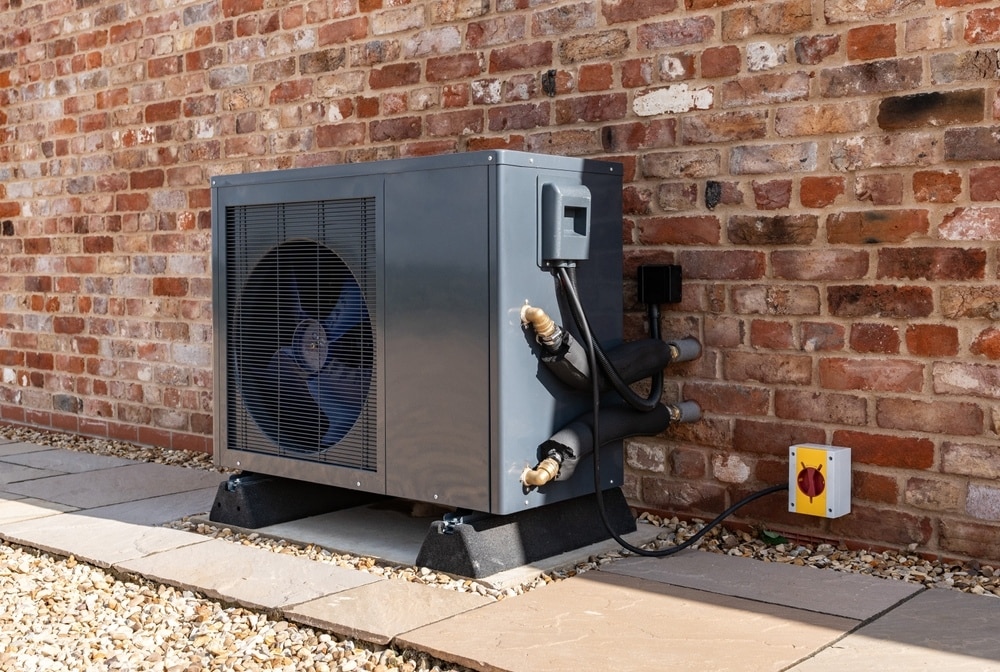Heat Pumps vs Furnaces: Benefits and Differences

You may have heard of heat pumps and gas furnaces, but aren’t they the same thing? Well, not exactly. While both heat your home, there are significant differences in how each works and the circumstances in which they perform best. If you are comparing the differences between heat pumps vs furnaces, we are going to answer all of your questions.
We will go over what a heat pump and gas furnace are, the key differences between the two, and which one would be a good fit for your home.
What is a Heat Pump?
Table of Contents
A heat pump is a system that takes heat from the air outside and uses it to heat the inside of your home. Heat pumps are a two-in-one package because they can work as both a heating and cooling unit. They also run on the electricity in your home, so they can be a more eco-friendly method of heating your home.
What is a Furnace?
A gas furnace burns either gas or oil to heat coils in your system that then warm the air that is distributed throughout your home. Although furnaces are only designed to distribute warm air and cannot provide cool air throughout the summer. They tend to be a more effective heating system in areas that have intense winters such as Wisconsin and Minnesota.
Consider the Region You Live In
When deciding whether you should go with a heat pump or gas furnace, one crucial thing to keep in mind is the region that you live in. While both heating systems can work efficiently in both the summer and winter months, heat pumps need to work harder during the winter because they have to draw heat from the air outside. On the other hand, gas furnaces will not need to work as hard because they do not rely on extracting heat from the outdoor air.

What Are the Differences Between Heat Pumps and Gas Furnaces?
What is the actual difference between a heat pump and a furnace? The differences include how they operate, their energy efficiency, safety, pricing, maintenance requirements, life cycle, available space, and appearance.
How They Operate
One of the main differences between these two home heating systems is how they work. Gas furnaces warm your home by burning oil or gas. On the other hand, heat pumps run on electricity and take heat from the air outside and distribute it throughout your home.
This makes heat pumps a more eco-friendly heating option, and they are more versatile than gas furnaces because they can also be used as air conditioning units.
Energy Efficiency
Comparing the energy efficiency of heat pumps vs gas furnaces is not as straightforward as you might think. Energy efficiency can depend on factors such as the model of the heater, the climate outside, and the cost of electricity versus gas. In general, gas furnaces tend to be more efficient during the winter months than heat pumps.
Safety
Both heat pumps and gas furnaces have safety features such as automatic shut-off valves and switches to prevent serious issues and keep your family safe. However, gas furnaces carry an innate risk of gas explosions and carbon monoxide poisoning. With the proper professional installation, both of these heaters are safe options for your home.
Pricing
Gas furnaces tend to have lower upfront costs but also higher installation and maintenance costs. In comparison, heat pumps have a higher upfront cost but can have lower installation and maintenance costs if you live in a more moderate climate.
Maintenance Requirements
If you are researching the differences between heat pumps and furnaces, both of these systems require annual maintenance to keep them performing efficiently along with enhanced lifespans.
The maintenance for each varies because heat pumps require an indoor and outdoor unit that both need routine maintenance. On the other hand, gas furnaces only require an indoor unit that is paired with an air conditioning unit that also requires maintenance.
Life Cycle
Gas furnaces and heat pumps have similar lifespans and can last a long time with the proper maintenance. The exact lifespan depends on factors such as how often you use your unit, how big your home is, what your thermostat is set to, and the climate that you live in.
Available Space
Heat pumps tend to be smaller than gas furnaces, requiring around a 24-inch space to install them. On the other hand, gas furnaces require at least 30 inches of clearance on every side in order to be safely installed and run properly.
Appearance
Homeowners tend to view gas furnaces as aesthetically unpleasant and bulky since they require so much space. In comparison, heat pumps are smaller and can be hidden more easily. Which unit you choose can depend on your preference for aesthetics, so keep this in mind when comparing a gas furnace to a heat pump.

Professional HVAC Repair Services in West Central Wisconsin and Minnesota
Our team of HVAC technicians are available to perform trusted furnace installation and heat pump repair services to help you prepare for the cold weather. Our heating and cooling solutions are used by countless numbers of homeowners in West Central Wisconsin and Minnesota each year.
Our staff provides reputable HVAC repair services in Cottage Grove, Minnesota and will help you weigh the benefits investing in a heat pump or furnace. Give our technicians a call at (715) 283-4422 to receive support.
